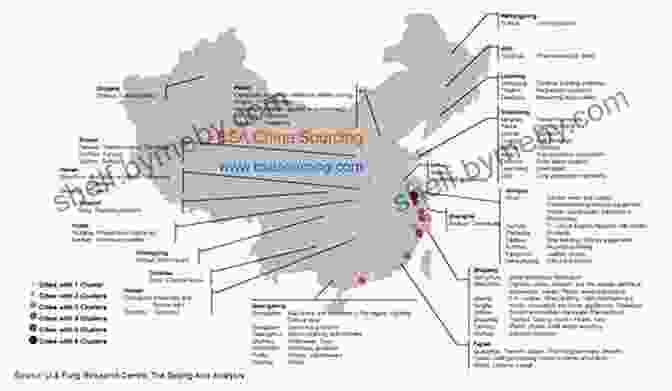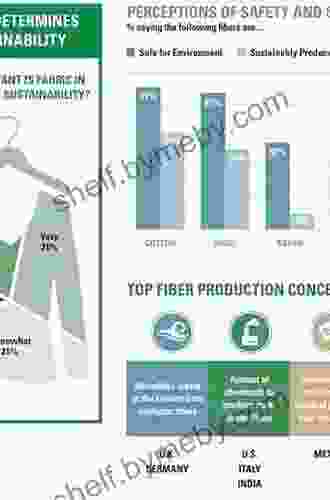Institutional Change and the Development of Industrial Clusters in China: A Comprehensive Exploration


4.9 out of 5
| Language | : | English |
| File size | : | 5730 KB |
| Text-to-Speech | : | Enabled |
| Screen Reader | : | Supported |
| Enhanced typesetting | : | Enabled |
| Word Wise | : | Enabled |
| Print length | : | 350 pages |
China's rapid economic growth over the past few decades has been marked by the emergence of numerous industrial clusters, which have played a pivotal role in driving innovation, competitiveness, and regional development. The formation and evolution of these clusters are closely linked to the country's ongoing institutional reforms and market liberalization policies.
This article explores the complex interplay between institutional change and the development of industrial clusters in China. It examines the impact of economic reforms, market liberalization, and the evolution of property rights on the formation, growth, and sustainability of industrial clusters. The analysis provides valuable insights for policymakers, business leaders, and researchers seeking to understand the dynamics of industrial cluster development in China and beyond.
The Role of Economic Reforms
China's economic reforms, initiated in the late 1970s, have transformed the country's economic landscape. These reforms have included the decentralization of economic decision-making, the of market mechanisms, and the opening up of the economy to foreign trade and investment. These changes have created a more conducive environment for the formation and growth of industrial clusters.
Decentralization has given local governments greater autonomy in managing their economies, allowing them to tailor policies and incentives to attract and support industries that align with their local advantages. Market liberalization has reduced barriers to entry and exit, enabling firms to specialize and cluster together to achieve economies of scale and scope.
Impact of Market Liberalization
Market liberalization has played a significant role in shaping the development of industrial clusters in China. The removal of price controls, the reduction of trade barriers, and the of foreign competition have forced Chinese firms to become more efficient and innovative. This has led to increased specialization and the emergence of clusters of firms focused on specific industries or products.
Foreign direct investment (FDI) has also been a major catalyst for the development of industrial clusters in China. Foreign firms have brought advanced technologies, management practices, and market access to China, helping to upgrade the country's industrial capabilities and fostering the formation of clusters in export-oriented industries such as electronics, textiles, and machinery.
Evolution of Property Rights
The evolution of property rights in China has had a profound impact on the development of industrial clusters. Prior to the reforms, collective ownership was the dominant form of property ownership, which limited the incentive for firms to invest in long-term development. The of private property rights and the recognition of intellectual property rights have provided firms with greater security and incentives to invest in innovation and cluster formation.
The establishment of special economic zones (SEZs) and other economic development zones has also played a crucial role in fostering the development of industrial clusters. These zones offer preferential policies and incentives to attract investment and promote economic growth, creating favorable conditions for the formation of clusters in emerging industries.
Case Studies
To illustrate the impact of institutional change on industrial cluster development, this article presents two case studies:
- Zhejiang Province: Zhejiang is one of the most economically developed provinces in China and is home to a number of successful industrial clusters, including the Hangzhou Xiaoshan Economic and Technological Development Zone, which is a major center for the electronics industry.
- Shenzhen: Shenzhen is a city in southern China that has experienced rapid economic growth and industrial cluster development since its designation as a special economic zone in 1980. The city is now a major hub for the electronics, telecommunications, and software industries.
These case studies demonstrate how institutional reforms, market liberalization, and the evolution of property rights have played a key role in the formation and growth of industrial clusters in China.
Policy Implications
The analysis of institutional change and industrial cluster development in China has important policy implications for governments seeking to promote economic growth and competitiveness. Policymakers should consider the following recommendations:
- Foster economic decentralization: Decentralization of economic decision-making allows local governments to tailor policies to suit their local advantages and support the development of industries that align with their comparative strengths.
- Promote market liberalization: Market liberalization reduces barriers to entry and exit, enabling firms to specialize and cluster together. Competition forces firms to become more efficient and innovative, leading to increased productivity and economic growth.
- Enforce property rights: Secure property rights provide firms with the incentive to invest in long-term development and innovation. The recognition of intellectual property rights is particularly important for fostering innovation and cluster formation in knowledge-intensive industries.
- Establish economic development zones: Special economic zones and other economic development zones can provide preferential policies and incentives to attract investment and promote economic growth. These zones can serve as catalysts for the formation of industrial clusters in emerging industries.
Institutional change has played a pivotal role in the development of industrial clusters in China. Economic reforms, market liberalization, and the evolution of property rights have created a more conducive environment for the formation and growth of clusters. These clusters have contributed significantly to China's economic development and competitiveness. The analysis and policy implications presented in this article provide valuable insights for policymakers, business leaders, and researchers seeking to understand and promote industrial cluster development in China and beyond.
4.9 out of 5
| Language | : | English |
| File size | : | 5730 KB |
| Text-to-Speech | : | Enabled |
| Screen Reader | : | Supported |
| Enhanced typesetting | : | Enabled |
| Word Wise | : | Enabled |
| Print length | : | 350 pages |
Do you want to contribute by writing guest posts on this blog?
Please contact us and send us a resume of previous articles that you have written.
 Book
Book Novel
Novel Page
Page Chapter
Chapter Text
Text Story
Story Genre
Genre Reader
Reader Library
Library Paperback
Paperback E-book
E-book Magazine
Magazine Newspaper
Newspaper Paragraph
Paragraph Sentence
Sentence Bookmark
Bookmark Shelf
Shelf Glossary
Glossary Bibliography
Bibliography Foreword
Foreword Preface
Preface Synopsis
Synopsis Annotation
Annotation Footnote
Footnote Manuscript
Manuscript Scroll
Scroll Codex
Codex Tome
Tome Bestseller
Bestseller Classics
Classics Library card
Library card Narrative
Narrative Biography
Biography Autobiography
Autobiography Memoir
Memoir Reference
Reference Encyclopedia
Encyclopedia Harvey Young
Harvey Young N Davis
N Davis Hirofumi Neda
Hirofumi Neda Hassan Abbas
Hassan Abbas Ian Davidson
Ian Davidson Ian Usher
Ian Usher Heath Hardage Lee
Heath Hardage Lee Tom Callahan
Tom Callahan Henry Zeybel
Henry Zeybel Ian Coleman
Ian Coleman Mark Wilson
Mark Wilson John C Lundell
John C Lundell Josh Lacey
Josh Lacey Mayo Clinic
Mayo Clinic William Pelfrey
William Pelfrey John A Garraty
John A Garraty Marcus Thompson
Marcus Thompson Heidi Herman
Heidi Herman Lucas Peters
Lucas Peters Michael Frary
Michael Frary
Light bulbAdvertise smarter! Our strategic ad space ensures maximum exposure. Reserve your spot today!

 Dominic SimmonsThe Ultimate Oil Painting Solution: Master Landscape, Portraiture, and Still...
Dominic SimmonsThe Ultimate Oil Painting Solution: Master Landscape, Portraiture, and Still...
 Dominic SimmonsUnveiling the Heartfelt Realm of My Mother's Gift: A Journey of Love, Loss,...
Dominic SimmonsUnveiling the Heartfelt Realm of My Mother's Gift: A Journey of Love, Loss,... Stanley BellFollow ·17.2k
Stanley BellFollow ·17.2k Eric NelsonFollow ·15.2k
Eric NelsonFollow ·15.2k Kendall WardFollow ·3k
Kendall WardFollow ·3k Grant HayesFollow ·19.1k
Grant HayesFollow ·19.1k Keith CoxFollow ·6.2k
Keith CoxFollow ·6.2k John GrishamFollow ·19.9k
John GrishamFollow ·19.9k Patrick RothfussFollow ·18.9k
Patrick RothfussFollow ·18.9k Howard PowellFollow ·13.6k
Howard PowellFollow ·13.6k

 Bo Cox
Bo CoxUncover the Enchanting Pearl of the Arabian Gulf: Insight...
Escape to the opulent...

 Michael Crichton
Michael CrichtonInsight Guides Pocket Baku Travel Guide Ebook: Your...
An Enchanting Journey...

 Eugene Scott
Eugene ScottLearn to Paint Scenic Scenes: Unveil the Secrets of...
Step into the...

 Benji Powell
Benji PowellEmbark on a Culinary Adventure with "The Ultimate Sichuan...
Sichuan cuisine,...

 Finn Cox
Finn CoxDiscover the Enchanting World of Art Nouveau: A...
Immerse yourself in the captivating beauty...

 Corey Green
Corey GreenUncover the Vibrant World of Guatemalan Chicken Buses: An...
Step into a world of vibrant colors,...
4.9 out of 5
| Language | : | English |
| File size | : | 5730 KB |
| Text-to-Speech | : | Enabled |
| Screen Reader | : | Supported |
| Enhanced typesetting | : | Enabled |
| Word Wise | : | Enabled |
| Print length | : | 350 pages |








